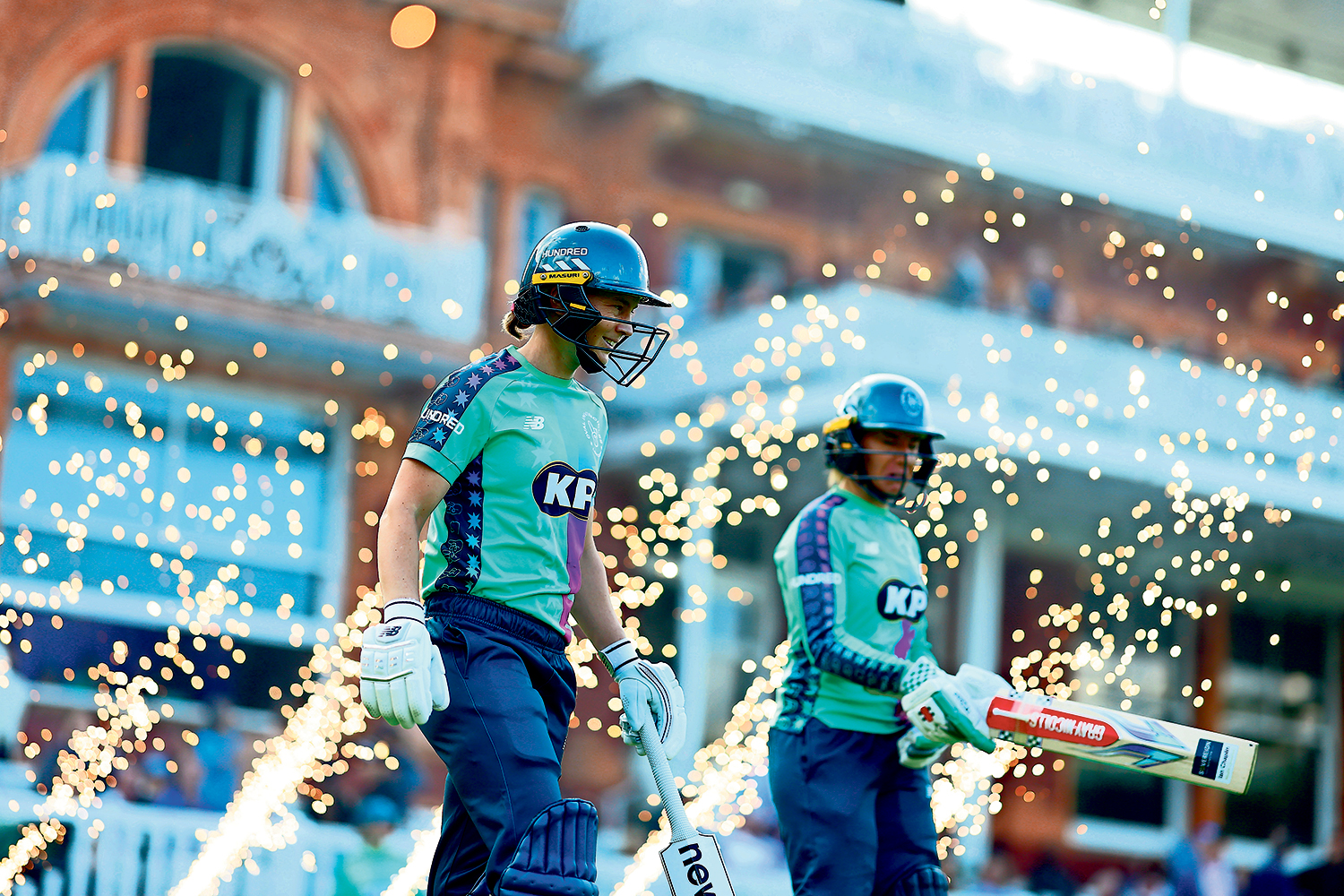I have been waiting 35 years to write this piece – ever since I watched England lose on penalties to Germany at the Stadio Olimpico in Rome in the semi-finals of the 1990 World Cup. Back then it would have been rather graceless to say then that a penalty competition is a rotten way to decide any football match, let alone a major tournament.
But I can say it now. The Lionesses won on penalties in the final of Euro 2025, so God’s in his heaven, all’s right with the world. They were great and they timed their run to perfection. But they won the penalty shootout with skills radically different from those they needed in the actual football match. The men’s World Cup finals of 1994, 2006 and 2022 were all decided by penalties. Penalties are increasingly a self-fulfilling prophecy: the existence of the possibility creates a near-inevitable event.
Penalty shootouts prioritise drama over the quest for sporting excellence. They are great television and provide much excitement, especially to people who don’t usually watch football. But they’re not proper sport: essentially they’re a game show. And all sports are increasingly now taking the game show route.
They make radical changes to whip up extra drama. Some of these changes work in pure sporting terms: others don’t. As a lapsed goalkeeper I’m inclined to see forbidding a goalie to handle the ball in the penalty area as a denial of fundamental human rights. But even I have to admit that the back-pass law has made for better sport. Just glad it came in too late for me.
In the 1970s, tennis began to introduce the tiebreak. Now even Wimbledon uses them in deciding sets. That followed the 2010 match in which John Isner beat Nicolas Mahut after a fifth set that finished 70-68 in a match that took 11 hours over three days. On the whole a good idea, then.
The American League brought the designated hitter into baseball in 1973: a player who doesn’t field but bats for a team-mate. The theory was that people prefer home runs to pitchers struggling to master a second skill. The National League followed in 2020.
America’s National Basketball Association has constantly tinkered with the rules to make the game sexier. In 1947 they made zone defense illegal; in 2002 they brought it back. The 24-second shot-clock was introduced in 1954, and the three-pointer — three points for a shot from distance — in 1980. The last two genuinely add excellence as well as drama.
The Olympic Games organisers are always worrying about being old-fashioned: justifiably enough since they began in 776 BC. But they consistently confuse relevance with fashion, bringing in four new sports in Paris last year. One was breaking, previously known as break-dancing; they’re still arguing about the “cultural disrespect” of the “kangaroo hop” performed by Rachael “Raygun” Gunn of Australia. They also added skateboarding, surfing and climbing; the last is pure sport and beautiful.
Audiences, once eavesdroppers at the door of excellence, are now in control
Audiences, once eavesdroppers at the door of excellence, are now in control
Entertainment. Drama. Excitement. The show, not the contest. These are not the classical priorities in sport. If you demand such things, professional wrestling supplies them with reckless generosity. Fake? Or genuine contest? In 1989 the owners of World Wrestling Entertainment, Vince and Linda McMahon testified under oath that wrestling was phoney. They did so in order to avoid paying tax in New Jersey, declaring that it wasn’t a contest. Rather it was a skilled entertainment. Like circus.
Perhaps Formula One has taken this to heart. They brought in the safety car in 1973: you can establish a massive lead through the excellence of your car and your driving skills, but when there’s an accident the safety car comes on and the whole field bunches up again, giving the second-raters a better chance to put on a show.
Newsletters
Choose the newsletters you want to receive
View more
For information about how The Observer protects your data, read our Privacy Policy
In the last race of the 2021 season a safety car was deployed in a manner that was actually against the rules. As a result, Lewis Hamilton was overtaken on the final lap by Red Bull’s Max Verstappen, who thereby won the world championship. It was the triumph of drama over sporting integrity.
Rugby union is always trying to be sexier as well as safer. The value of a try has gone up from three to four to five points. More recent additions include the 50-22 kick and goal-line drop-outs. Rugby league was aware of the pressure to entertain from its formation in 1895, when the sport became professional. They reduced the format to 13 a side and allowed players to retain the ball in the tackle: a game of pure running and tackling, rather than the bewildering complexities of its ancestor.
This summer brought a Test cricket series between England and India, one full of excellence as well as any amount of non-synthetic drama. But who wants that?
Many sporting changes irritate that sport’s heartland followers. Cricket has done much better. Many people devoted to cricket have developed a visceral loathing for The Hundred. Sure, it’s great for women’s cricket. It’s also as near to professional wrestling as any sport can get without claiming to be “skilled entertainment”.
The IPL now drives cricket: 20-overs each way, music, fireworks, dancers, crowd stunts, strategic timeouts and anything else that television might want. Especially sixes. More and more sixes. Worse ball, better bats, closer boundaries, fielding restrictions, bowling restrictions: anything else we can do to help? A thrilling rarity is now routine. Chris Gayle hit 357 sixes in the IPL alone.
This universal trend is not mere rule tampering. It’s a fundamental change in the nature of sport. Sport is no longer understood as a test of excellence that is often — but quite incidentally — entertaining. Audiences, once eavesdroppers at the door of excellence, are now in control of the spectacle. Entertainment has become the entire purpose of sport, because that way you reach more people and make ... more ... money ...
People who like sport are no longer enough. These days sport must also appeal to people who don’t like sport. The target audience is no longer the heartland: it’s the floating voter. Posing two questions. How long will it be before the floating voters find something more amusing? And when they do, will the heartland still exist?
Photograph by Alex Davidson/ ECB via Getty



